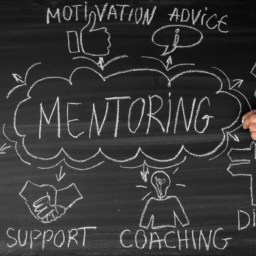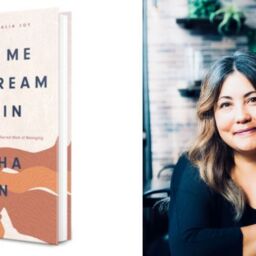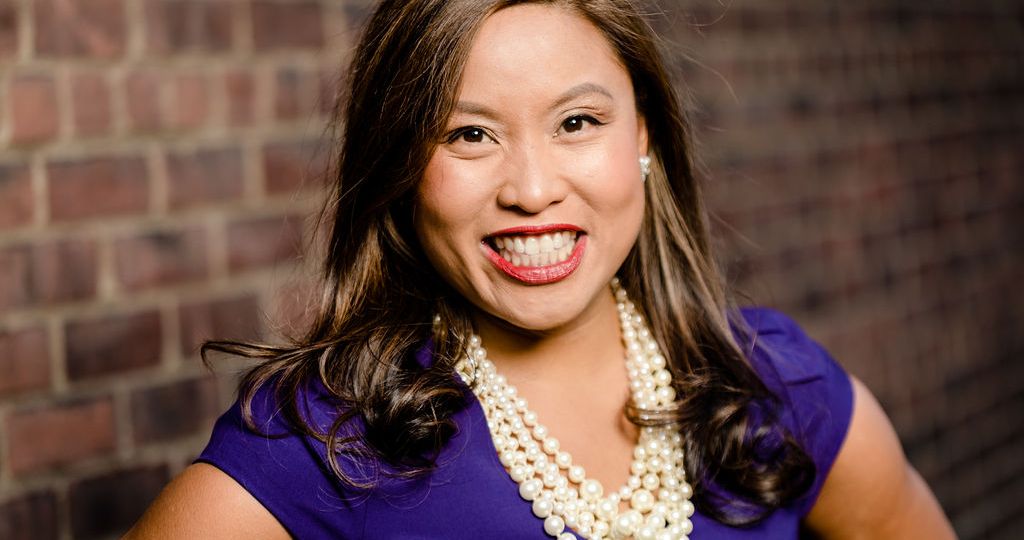
“Get Engaged (in Your Community) with Tiffany Hanson” is a series exploring community engagement opportunities in Indianapolis.

Melissa Borja is an incredible Filipina American woman here in Indianapolis working to embrace and uplift our Asian American community. Originally born and raised in Saginaw, Michigan, Borja is a fairly new Hoosier, bringing her life experiences and family heritage to her community engagement and advocacy work here in Indiana.

Borja works as a core faculty member in the Asian/Pacific Islander American Studies Program at the University of Michigan. She earned a Ph.D. and M.Phil. in history from Columbia University, in addition to an M.A. in history from the University of Chicago and an AB in history from Harvard University. Borja also recently earned the distinction of being named one of USA TODAY’s Women of the Year, a recognition of women across the country who have made a significant impact.
You can understand how excited I was to have a conversation with Melissa about our Asian-American community and how Hoosiers can create a more inclusive home for more of our neighbors.
OUR GROWING ASIAN AMERICAN COMMUNITY
Asian Americans recorded the fastest population growth rate among all racial and ethnic groups in the United States between 2000 and 2019, according to the Pew Research Center. During that time, the Asian population in the U.S. grew 81%, from roughly 10.5 million to a record 18.9 million people.
To bring it back home, the IndyStar reported that Indiana’s Asian population has grown by nearly 64% in the last decade. In 2020 Census data, Asian Hoosiers are shown to make up at least 2.5% of the state’s population, which, at almost 6.8 million people, adds up to almost 170,000 Asian residents here in Indiana.
MELISSA BORJA’S CONTRIBUTIONS
Melissa Borja’s parents came to the United States from the Philippines in the 1970’s, escaping a country in the grips of a dictator. Borja’s inspiration for much of her own community work is inspired by her parents. “They came to the U.S., and they were so committed to being active political participants. They just love voting. They love being involved in making the community better,” Borja shared.
Borja’s father served on the Michigan Asian Pacific American Affairs Commission, working with other Asian Americans to create a more inclusive environment across the state of Michigan and helping Asian Americans work for change in their community. One of Borja’s long-term goals is to begin an Asian Pacific American Affairs Commission here in the State of Indiana.
Currently, Borja is focused on education about Asian American affairs, recognition of support of our Asian American community members, and engagement of our Asian American neighbors in political elections and the voting process.
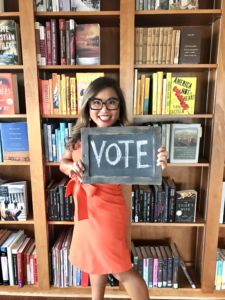
Borja works closely with the National Asian Pacific American Women’s Forum (NAPAWF) and serves as the Indiana chapter’s policy and politics chair. One of the most recent efforts Borja worked on was the first statewide voter outreach campaign for Asian American women. She and her volunteer team at NAPAWF made phone calls in five different languages to voters across Indiana to provide education about the election process and to encourage and help residents to vote.
Borja and her team also work to make sure our leaders pay attention to the concern about rising anti-Asian discrimination and violence. On the local level, this manifested in creating a public petition calling on Governor Holcomb’s office to take steps to ensure that Asian Americans — no matter their background, the languages they speak, or their religious beliefs — are treated with dignity and equity in the state of Indiana.
The requests in the petition include:
- Requesting elected officials specifically and publicly reject racism against Asian Americans
- Putting procedures and programs in place to address the rise of anti-Asian racism during the pandemic
- Creating a state advisory board for Asian Americans, just as states like Michigan have done.
Note: Indiana hosts a commission focused on Hispanic and Latino affairs, the social status of Black males, and women, but has yet to create a commission to support Asian American Hoosiers.
More broadly, Borja contributes to nationally recognized research focused on anti-Asian racism during the Covid-19 pandemic. She also applies her background and skills as the lead investigator of the Virulent Hate Project and has contributed research to Stop AAPI Hate.
WHAT DOES RACISM AGAINST ASIAN AMERICANS LOOK LIKE?
You may have seen viral videos of physical assaults of Asian people and read about horrific events like the white man who went on a murderous rampage in the Atlanta suburbs, targeting local spa businesses and killing eight people, six of them Asian women. Many times however, anti-Asian hate commonly appears in the form of microaggressions.
Discriminatory rhetoric across the U.S. has increased due to the usage of terms such as “China virus” and “Kung-flu” from national government leaders in their public statements. Borja found in her research that now when people are attacked or harassed, these are the terms that the attackers typically use during these confrontations. Public usage of these terms has also been shown to increase the perception of all Asian Americans as foreigners, rather than the American-born citizens that they often are.
This also extends to Asian-American children in our community. Borja stated, “Nationally, one in four Asian American youths has experienced some sort of racist bullying during the pandemic. 50% of the time an adult has been present to intervene and has not.”
BORJA’S BEST PRACTICES TO SUPPORT ASIAN AMERICANS
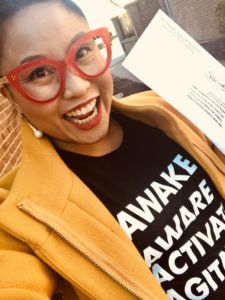
What can Mavens do to help? Here are some of Borja’s suggestions:
- Learn from the people in your immediate surroundings. Develop good relationships and focus on meaningful, equal power relationships—this includes listening with an intent to understand, rather than listening with an intent to respond.
- Find local organizations that specifically serve Asian Americans, then learn about and support their efforts. You can access a national database of AAPI community organizations from the Virulent Hate Project.
- Acknowledge your Asian American friends and colleagues during important times. When major anti-Asian events happen, acknowledge that you see them, recognize they might be affected, and ask how you can support them. “Asian Americans often feel frustrated that we’re invisible,” Borja shared.
Borja also explained that people often assume that because she’s an Asian American woman, she will keep her head down and be quiet and submissive. “We’re loud. We’ve been loud. Maybe you haven’t been listening, but we’ve been talking about these issues of racism and racialized misogyny for a long time,” Borja said.
MAVENS SUPPORTING MAVENS
If you are looking to find more amazing women like Melissa Borja to support, here are some of Borja’s close colleagues and friends who are also engaging in important ways in our Indiana community to support Asian American Hoosiers:
- Ellen Wu – associate professor of History and director of the Asian American Studies Program at Indiana University Bloomington, and 2022 New America National Fellow
- Jalyn Radziminski – Indiana protection and advocacy services commissioner at Indiana Disability Rights, and founder of Count US IN
- Melanie Castillo-Cullather – director at the Asian Culture Center at Indiana University Bloomington and director at the Narra Foundation, a nonprofit organization that provides humanitarian aid to victims of disasters in the Philippines and other countries
- Michelle Dahl – founder of Michelle’s Little Free Pantry, organizer of the first Greenwood Pride Festival, member of the 2022 Hoosier Women Forward class, and Indy Maven Editorial Board member
- Rima Shahid – chief executive officer at Women4Change, former executive director of the Muslim Alliance of Indiana, and Indy Maven contributor
- Shruti Rana – assistant dean and professor of International Law & Human Rights at Hamilton Lugar School of Global & International Studies at Indiana University Bloomington, and volunteer with NAPAWF
Connect with Melissa Borja on LinkedIn or Twitter @MelissaMayBorja.
Tiffany Hanson is an outreach and engagement professional committed to finding ways to embrace and support humans wherever she goes. You can find her on LinkedIn and Instagram.
All of our content—including this article—is completely free. However, we’d love it if you would please consider supporting our journalism with an Indy Maven membership.







